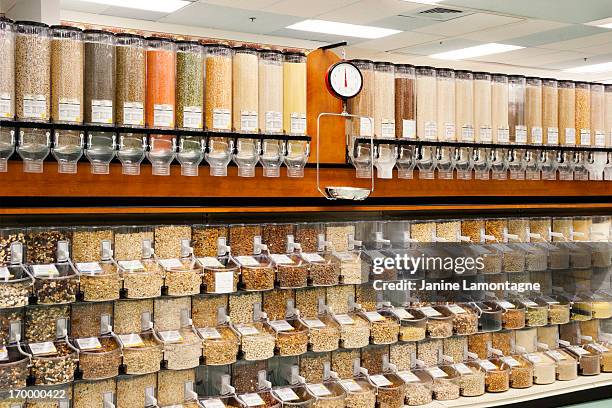
A grain shop refers to a store or shop where grains, such as cereals, pulses, rice, wheat, flour, and other related food products, are sold. These shops are common in many countries and serve as retail outlets where people can purchase bulk food items, especially those used in everyday cooking.
Types of Grains Sold in a Grain Shop
- Rice: Available in different varieties like basmati, jasmine, and local varieties.
- Wheat: Sold as whole wheat or refined flour (maida) for baking and cooking.
- Pulses/Legumes: Lentils, chickpeas, peas, beans, and other dried legumes.
- Millets: Sorghum (jowar), pearl millet (bajra), foxtail millet, etc.
- Barley: Used in soups, stews, and brewing beer.
- Corn: Both in whole kernel form and cornmeal (for making polenta, tortillas, etc.).
Services Offered by Grain Shops
- Bulk Purchase: Grains are often sold in bulk, allowing customers to buy according to their specific needs.
- Packaging: Many grain shops offer the option to package the grains in convenient sizes for customers to take home.
- Freshness: Grains in such shops are often kept in storage bins or large sacks to ensure freshness and maintain quality.
Grain Shops vs. Supermarkets
While supermarkets may carry a wide range of grains, a grain shop focuses primarily on the sale of grains and related products. These shops might offer a more specialized selection, often at better prices, especially for bulk purchases. Some grain shops may also sell organic grains or local varieties not found in larger commercial stores.
In some regions, particularly in rural or traditional settings, grain shops also serve as local hubs for community interaction and exchange of agricultural goods.

Leave a Reply